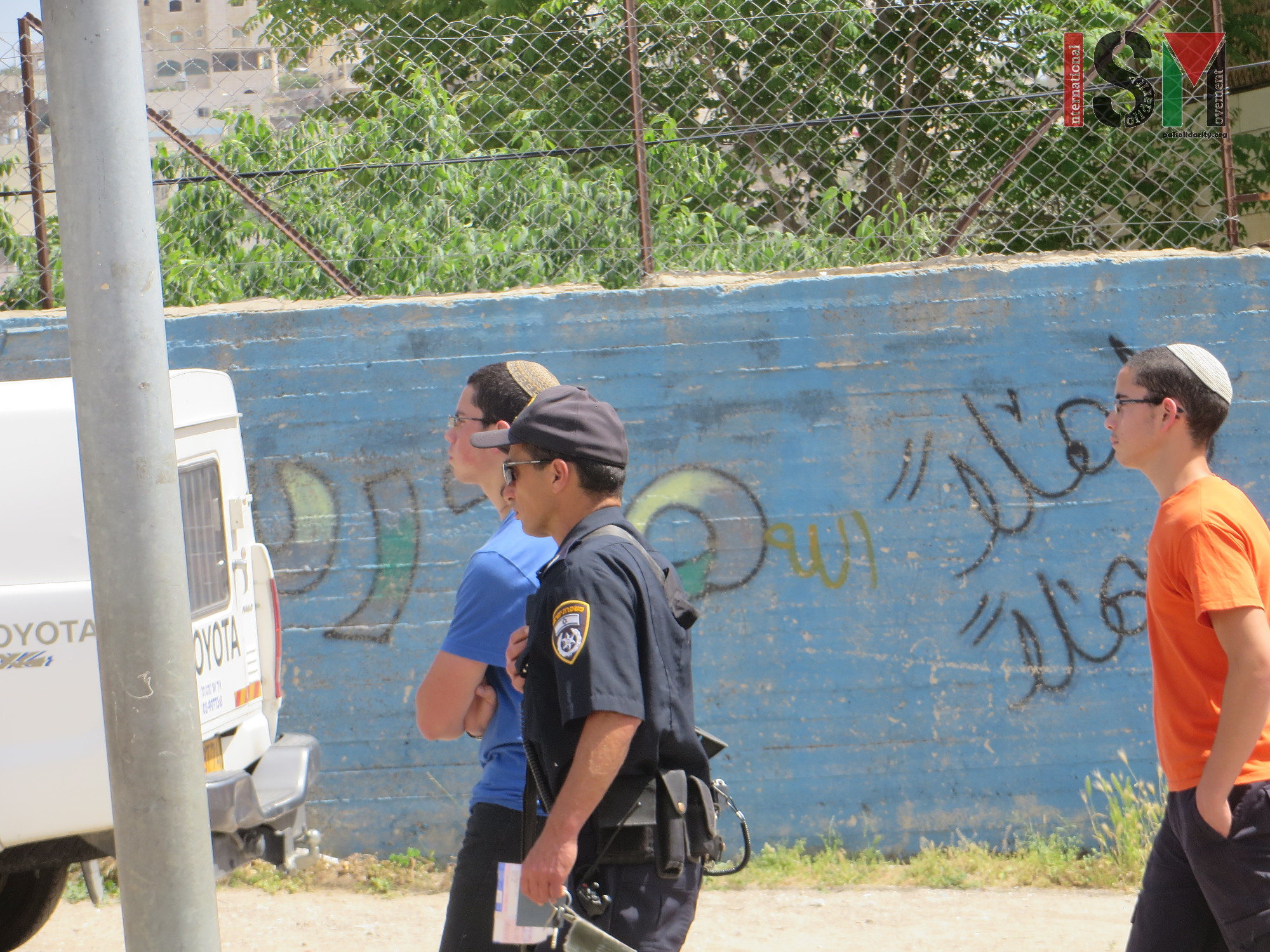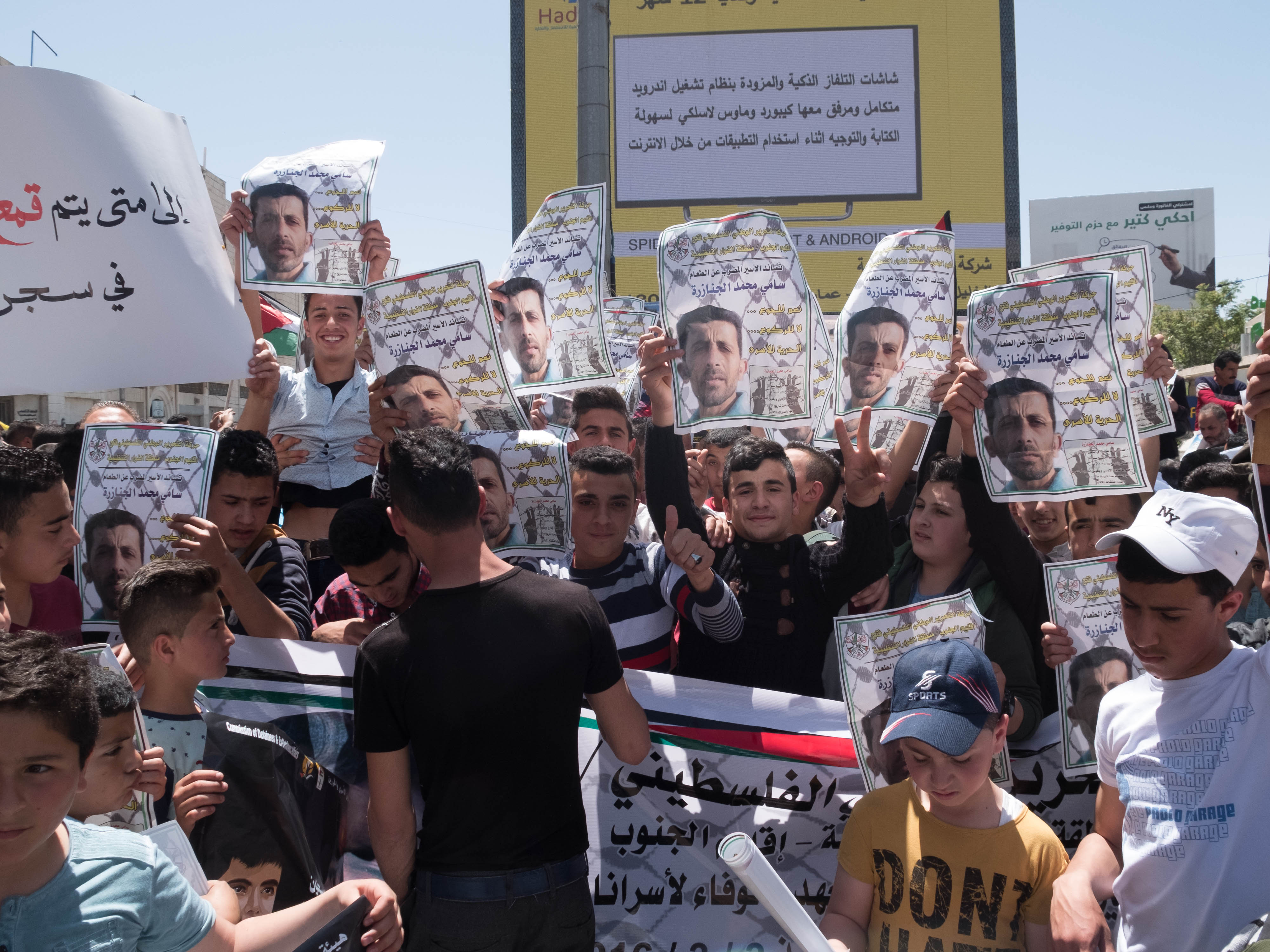Tag: Hebron
-
Palestinian youth intentionally run over in Hebron
22st April 2016 | International Solidarity Movement, al-Khalil team | Hebron, occupied Palestine On the afternoon of 21st April 2016, an Israeli settler ran down a Palestinian youth with his car, causing critical injuries, near the Ibrahimi mosque in occupied al-Khalil (Hebron). Two settlers were driving down the road connecting Shuhada Street and Kiryat Arba in…
-
Sami Janazreh enters 46th day of hunger strike
17th April 2016 | International Solidarity Movement, Al-Khalil Team | Hebron, occupied Palestine Today volunteers from ISM attended a demonstration in Al-Khalil for Prisoners’ Day. Once the main demonstration had ended in the city a group of young Palestinians invited the volunteers to the Fawwar refugee camp outside the city. At the camp they were…
-
Tree Planting and Protest in Beit al-Baraka
10th April 2016 | International Solidarity Movement, al-Khalil Team | Hebron, occupied Palestine Trees were planted and a demonstration took place today at Beit al-Baraka today to protest the extension of the illegal Gush Etzion settlement bloc. An international presence had been requested by the organisers so two ISM volunteers headed to Beit Ummar to…



